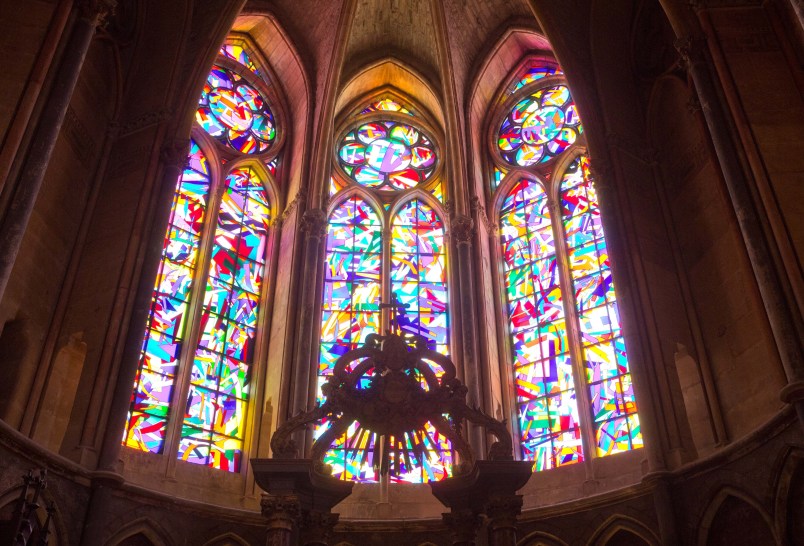NEW YORK (AP) — The number of Americans who don’t affiliate with a particular religion has grown to 56 million in recent years, making the faith group researchers call “nones” the second-largest in total numbers behind evangelicals, according to a Pew Research Center study released Tuesday.
Christianity is still the dominant faith by far in the U.S.; 7 in 10 Americans identify with the tradition. However, the ranks of Christians have declined as the segment of people with no religion has grown, the survey says.
Between 2007 and 2014, when Pew conducted two major surveys of U.S. religious life, Americans who described themselves as atheist, agnostic or of no particular faith grew from 16 percent to nearly 23 percent. At the same time, Christians dropped from about 78 percent to just under 71 percent of the population. Protestants now comprise 46.5 percent of what was once a predominantly Protestant country.
Researchers have long debated whether people with no religion should be defined as secular since the category includes those who believe in God or consider themselves “spiritual.” But the new Pew study found increasing signs of secularism.
Last year, 31 percent of “nones” said they were atheist or agnostic, compared to 25 percent in 2007, and the percentage who said religion was important to them dropped.
Greg Smith, Pew’s associate research director, said the findings “point to substantive changes” among the religiously unaffiliated, not just a shift in how people describe themselves. Secular groups have become increasingly organized to counter bias against them and keep religion out of public life through lawsuits and lobbying lawmakers.
The growth of “nones” has political significance as well. People with no religion tend to vote Democratic, just as white evangelicals tend to vote Republican. The Pew study found a slight drop — about 1 percent — in the evangelical share of the population, which now comprises a quarter of Americans. But the overall number of evangelicals rose to about 62 million people.
Pew researchers said Christian losses were driven by decreases among mainline, or liberal, Protestants and Roman Catholics.
Mainline Protestants declined by about 5 million to 36 million between 2007 and 2014. Pew found 13 percent ofU.S. adults are former Catholics. The study put the number of Catholic adults at 51 million, or just over one-fifth of the U.S. population, a drop of about 3 percent over seven years. In 2007, Catholics made up about one-quarter of Americans.
However, Pew researchers acknowledge those conclusions differ from those of some other major studies that found only slight declines or even a slight uptick in the numbers of Catholics in the last couple of years. Georgetown University’s Center for Applied Research in the Apostolate, which tracks American Catholicism, puts the U.S. adult Catholic population at 61 million.
Regarding other religions, Pew found an increase in membership of non-Christian faiths, driven mainly by growing numbers of Muslims and Hindus. Despite the increase, their numbers remain small. Muslims and Hindus each comprise less than 1 percent of the U.S. population. The number of Jews rose slightly over the period, from 1.7 percent to 1.9 percent of Americans.
Overall, religious groups have become more ethnically diverse along with the broader population. Latinos now comprise one-third of U.S. Roman Catholics, although fewer U.S. Latinos identify as Catholic overall. One-quarter of evangelicals and 14 percent of mainline Protestants are racial minorities. Membership in historically black churches has remained relatively stable over the period.
The survey of 35,000 people, titled “America’s Changing Religious Landscape,” was conducted in English and Spanish from June 4 through Sept. 30 of last year and has a margin of error of plus or minus 0.6 percentage points.
___
Online:
America’s Changing Religious Landscape report: http://www.pewforum.org/2015/05/12/americas-changing-religious-landscape/
Copyright 2015 The Associated Press. All rights reserved. This material may not be published, broadcast, rewritten or redistributed.







No surprise here. I am careful to always call those on the right repub Christians. They are not true Christians. They do not follow the Prince of Peace. They do not follow the Sermon on the Mount. They are way too judgmental. How they think they are following Jesus is a joke. Although I strongly believe in separation of Church and State, repubs’ positions and proposed legislation are most un-Christ like. If there is a hell, repub Christians are going to be mighty surprised.
Just be ready: the level of Krischun freakout is (obviously) inversely proportional to the number identifying as Krischun.
So now we understand what the real freak out in the American Family Association and other religious groups (Fox News) is all about.
We’re on our way to a country where ¨unaffiliated¨ is the largest ¨religious¨ group. Imagine that
Is there any relevance to a number that represents those who identify as Christian? There would be an even sharper decline if we could eliminate the cultists who wrap in a flag and carry a bible. They exist only for the purpose of blaming and shaming. A good question may be are there any real Christians, who don’t use religion for their own gain rather than its purpose of lifting others out of suffering? The bar has been set so appallingly low.